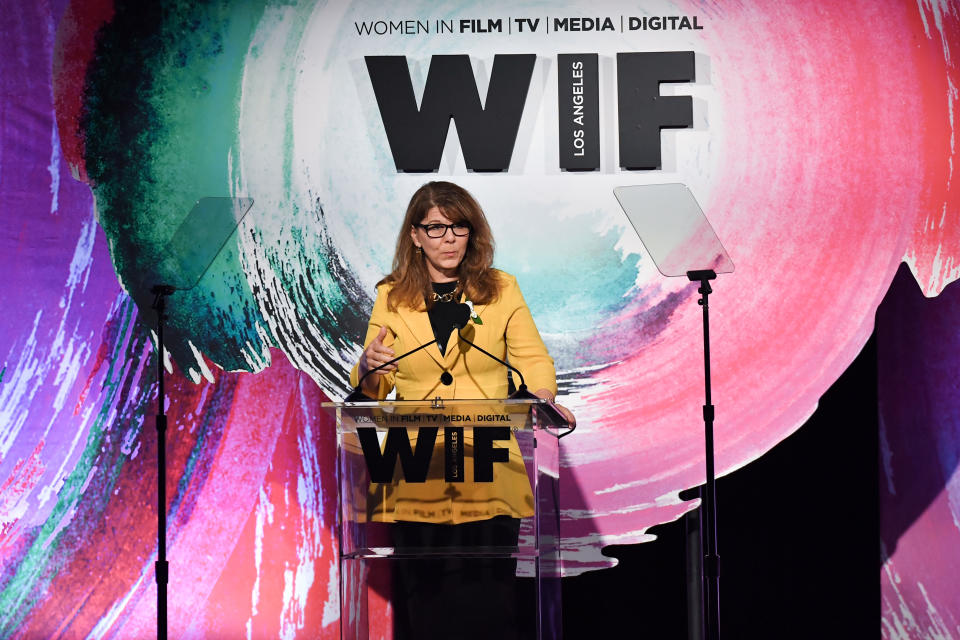Cate Blanchett Says Her Diversity Grant Program Is Different Because It’s ‘Intensely Practical’

Cate Blanchett and her producing partner Coco Francini told IndieWire the tagline for their new diversity grant program should be “Intensely Practical.” OK, so it was at least partially a joke based on an off-the-cuff remark by Blanchett, but it’s also not a bad differentiator between their incubator and others.
Blanchett through the Proof of Concept Accelerator is offering eight filmmakers $50,000 to make short films from their unique POVs. The real value however may be in her selection committee: Chloé Zhao, Emma Corrin, Eva Longoria, Greta Gerwig, Jane Campion, Janicza Bravo, Lily Gladstone, and Lilly Wachowski.
More from IndieWire
The money (and the mentorship) is definitely practical, sure, but “intensely”? No one is more intensely practical than USC’s Dr. Stacy Smith.
Through her Annenberg Inclusion Initiative, Smith has studied diversity in entertainment for more than 20 years. She’d like to say the industry has changed before her very eyes, but it hasn’t. The lack of progress in the industry is so obvious that Smith says she can rattle off these annual reports “without even seeing the data.”
“There’s little spontaneity and imagination that’s needed to write the reports that I write because there’s been so little change,” she said.
Here’s some data to excite her: Of the 1,200 Proof of Concept applicants, 85 percent identify as women, 2 percent identify as men, 9 percent as non-binary, and 8.5 percent were transgender. In Smith’s latest annual study of directors on the top films, only 6 percent of the top 1,700 movies between 2007 and 2023 were directed by women, and only two films had trans directors.
In terms of racial diversity, 52 percent of all the accelerator applicants were people of color, 16 percent of applicants identified as Black/African American, 13 percent were Hispanic/Latino, 14 percent were Asian, 5 percent were Middle Eastern/North African, 2.2 percent were Indigenous, and 1.2 percent were Multiracial/Multiethnic. By comparison, Smith’s study says only 22.7 percent of directors on the top films were considered from underrepresented groups.
The numbers from the pool of applicants prove “it’s not about talent; it’s really about access and opportunity, and that’s been lacking,” Smith said.
Blanchett concurs.
“I have seen so many fascinating, interesting films made by…marginalized voices that just do not get the chance to be seen by an audience,” Blanchett said.
Why? The studios and distributors “don’t know how to market” them, Blanchett continued. “They don’t know how to talk about it. There’s this ridiculous notion that somehow people wouldn’t be interested in those perspectives.”
Blanchett, Francini, Smith, and their A-list committee are interested.
“As producers we were constantly — and we’re not alone — looking for authored points of view that you haven’t encountered before. But if you don’t invite diverse perspectives and points of view onto the table early, that doesn’t actually happen,” Blanchett said. “It’s been my personal experience and I know the experience of probably every single person in various different ways on the selection committee, that we’ve encountered similar frustrations. So rather than looking at the data and feeling powerless, we’re really excited to do something intensely practical.”
There it is!

Blanchett and friends will approach the grant program’s projects the same way they would produce any indie feature, she said, making sure the filmmaker has all the resources they need to get the project made. All the resources, and the right resources.
“This is not a cookie-cutter program,” Blanchett said. “It’s the first time we’ve done it. So we’ve got to be aligned to what each project needs.”
The recipients of the grants will be announced later this spring.
Blanchett and Francini are hoping at least one of the eight shorts that come out of the program turn into a studio feature or series, perhaps even on Netflix. That brings us to practicality number 3: Netflix. The Netflix Fund for Creative Equality is among the incubator’s backers. There is no guarantee of placement on Netflix for the incubator’s projects, but you never know.
“We hope to see things that are not only really specific to a director’s voice, but also commercial,” Francini said. “I think we want big ideas. We want things that can resonate with audiences, just like everybody else. So I think that while we all love an intimate, personal film, we’re looking for people that want to take the next step and for their voices to reach audiences.”
Netflix has 260 million global paid subscribers. Just sayin’.
Of course, the ultimate goal of the program is for the program to have no reason to exist, Blanchett says: “Wouldn’t it be great if it was unnecessary in five years time?”
Best of IndieWire
The Best LGBTQ Movies and TV Shows Streaming on Netflix Right Now
Guillermo del Toro's Favorite Movies: 54 Films the Director Wants You to See
Nicolas Winding Refn's Favorite Films: 37 Movies the Director Wants You to See
Sign up for Indiewire's Newsletter. For the latest news, follow us on Facebook, Twitter, and Instagram.

 Yahoo News
Yahoo News 
